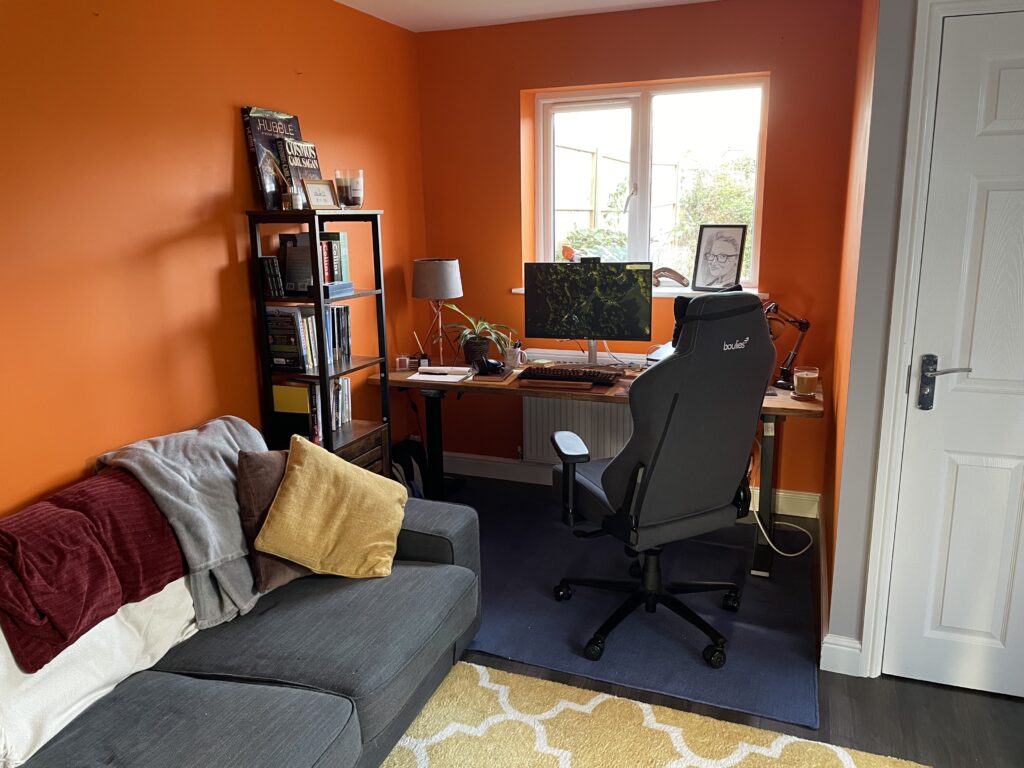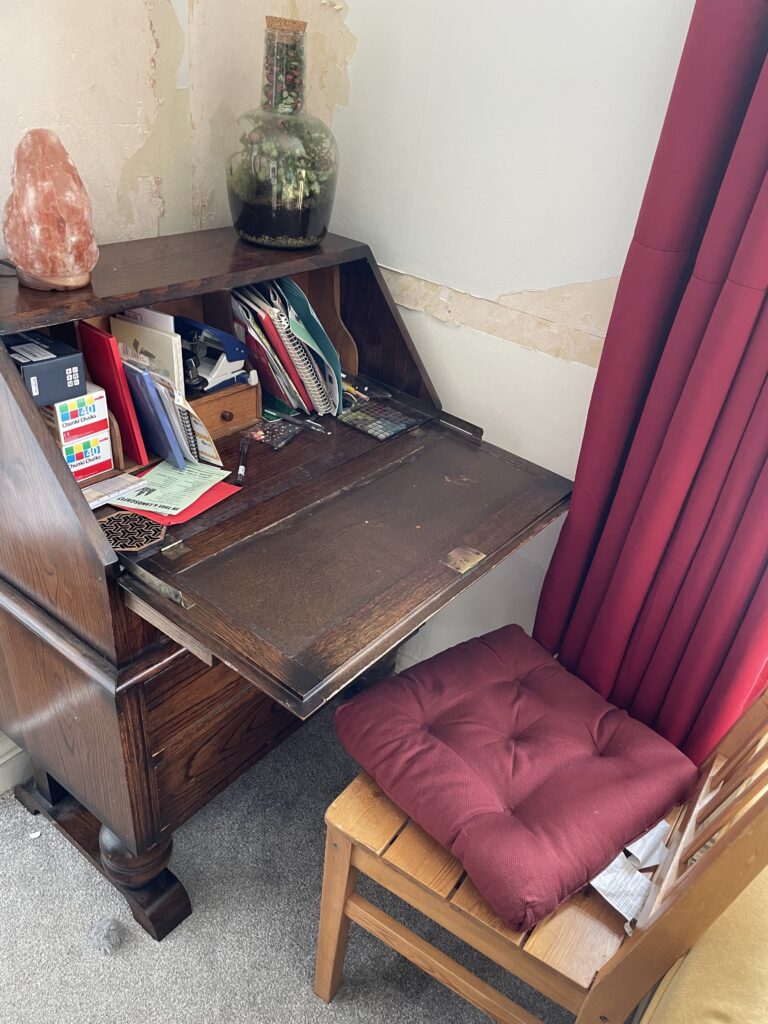I’m pleased to announce that my science-fantasy short story “Reflections on Discord” will be published in the forthcoming winter issue of The Colored Lens.
Parallel worlds, living reflections, and an abandoned ancient city.
More soon.

-
I’m pleased to announce that my science-fantasy short story “Reflections on Discord” will be published in the forthcoming winter issue of The Colored Lens.
Parallel worlds, living reflections, and an abandoned ancient city.
More soon.

The following publications were published in 2024 and are award eligible. Please consider them for the following awards (and any others not listed here that you are aware of): Hugo, Nebula, Locus, BSFA, Ignyte and Rhysling. Social media shares and recommendations to friends and family are also helpful.
Any paywalled stories can be requested via my contact page.
Short fiction
Poetry
If you’re a member of SFWA, you can add/upvote these stories on the Nebula reading list.
Finally, I am also eligible in the coming year for the Astounding award for Best New Writer.
This year I’ve written the more short stories and poems than any year previously, and it’s only October. Things have been going well—I’ve sold five stories, one poem, and have six pieces being held by editors for further consideration—but there’s also been more rejection than ever as well.
Only a short time ago, such volumes of rejections would have really set me back. Even a major sale doesn’t make up for a couple of rejections from smaller markets—the brain simply isn’t wired that way. Our loss aversion bias often kicks in and overrides any logical assessment (for details see The Decision Lab’s primer on loss aversion).
But I’ve been lucky enough to have met some great artists over the last year, who have been kind enough to share details on how things are really going, behind the carefully managed hype they’re obliged to present on sales channels and social media.
So here’s a quick summary of my stats for the year so far (since 1st Jan 2024):
| All | Poems | Short stories | |
| Submissions | 262 | 29 | 233 |
| Acceptances | 6 | 1 | 5 (2 reprints) |
| Withdrawals | 8 | 0 | 8 |
| Form rejections | 158 | 16 | 142 |
| Personal rejections | 27 | 3 | 24 |
| No response | 3 | 0 | 3 |
| Pending response | 60 | 9 | 51 |
And here’s a breakdown of percentages in each category, excluding pending responses:
| Acceptances | 3% |
| Withdrawals | 4% |
| Form rejections | 78% |
| Personal rejections | 13% |
| No response | 2% |
A 3% acceptance rate isn’t fantastic, but it isn’t terrible either—especially considering that I’ve been focusing on higher-tier markets this year with acceptance rates in the <1% range. Also, while I’m still new to this, I’ve heard from many seasoned short story writers that this year has been especially difficult when it comes to landing sales. Many pros haven’t managed to land any sales at all, so I’m counting myself lucky.
Some of the stories currently being held by editors will translate to further sales. There’s also the magic bag of pending submissions; if we assume that the 3% sales rate holds then we’d expect another 2 sales. We can get a conservative estimate of the final sales count by assuming maybe 2 of the 6 stories being held will sell; altogether we’d have 10 sales from 262 submissions, around 4% of the total.
And then, of course, there’s the rest of the year to play with.
I just got off a long redraft on a book, and I’m feeling in need of a reset. Last year, in a similar situation, I handled the buzz in my brain by throwing myself into a slew of short stories. It was a reasonable enough idea: in short form I can rapidly explore lots of different, fresh ideas, get some distance from the well-defined set of themes that grows around and defines a longer piece.
The problem was that I didn’t feel the drive to create these stories. I think a lot of that was because I’d chosen the projects based on calls for themed anthologies—at least somewhat writing stories to spec. I relied on these themed submission calls because I had assumed that I needed some kind of crutch, a template to just get me going, producing something.
Forgetting that my brain just doesn’t work like that. I always end up a long way from where I first aimed. And I don’t like cooking with one ingredient; I like using all the odds and ends that have been hiding at the back of my mental cupboards. In that sense, my stories are like Hawaiian pizza: you’d never put those things together in any other scenario, and it’s definitely not everyone’s thing, but if you’re into it then you’re ordering the extra-large with stuffed crust.
Suffice to say those stories didn’t turn out well. None of them sold, and looking back at them with some distance it’s clear why: it’s clear that I was just spinning the wheels, pumping out serviceable prose as part of a whole that lacked passion.

So this time around I’m not speed-writing a big pile of pre-themed stuff. I’m not trying to write anything cohesive at all, at least for a little while. Instead I’m just recharging, spitting out fragments longhand in the quiet of a separate desk space in the living room, by the big bay window.
Ursula K. Le Guin’s writing routine was to sit down and start writing just after she woke up to a big breakfast, and write like a demon until lunch. That always sounded admirable and serious to me, and in my student days that was exactly what I did, scrambling to pump out a few thousand words before my 9am lectures (which seems like a herculean volume in retrospect—quality notwithstanding).
Ursula K. Le Guin’s daily schedule
First appeared in an interview she gave in 1988 (and more recently reappeared in Ursula Le Guin: The Last Interview and Other Conversations)Source: https://deepstash.com/idea/97527/ursula-le-guins-daily-schedule
5:30 a.m. – wake up and lie there and think.
6:15 a.m. – get up and eat breakfast (lots).
7.15 a.m. – get to work writing, writing, writing.
Noon – lunch.
1:00-3:00 p.m. – reading, music.
3:00-5:00 p.m. correspondence, maybe house cleaning.
5:00-8:00 p.m. make dinner and eat it.
After 8:00 p.m. – I tend to be very stupid and we won’t talk about this.
These days my typical routine involves being hounded awake by my cat so that I can take her for a walk in the garden, whereupon I stab blindly at the coffee machine and grab a book to read while she does her thing. I then read a while in the living room, have breakfast and a shower, answer emails, and then go to my desk. Usually, that works great for me. But right now, I associate it too strongly with the whirlwind of book revisions, so I need a routine holiday.
So it’s Le Guin-style for a couple weeks.

The success criterion is to clear the cylinders, but after two weeks it’s already exceeded that. I’ve produced five poems, about half of a new short story—which maybe maybe maybe might actually be good—and an outline for a further short story.
I write longhand as part of my daily practice, but it’s for deep thought and troubleshooting. It’s not usually where the bulk of the word count comes from. For now I’m enjoying the case being reversed. The words come slower but they’re often the right words, words that don’t need to be tweaked as much.